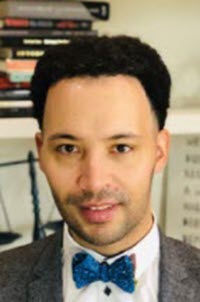Become a Patron!
Excerpted From: Brandon Hasbrouck, Who Can Protect Black Protest?, 170 University of Pennsylvania Law Review Online 39 (2022) (69 Footnotes) (Full Document)
 When George Floyd was murdered, Darnella Frazier had the presence of mind to pull out her cell phone and record--an act critical to the eventual conviction of former police officer Derek Chauvin. Cell phone videos are a powerful tool against police misconduct, and even pro-police organizations recognize the legality of recording police. Generally speaking, you're allowed to openly record police so long as the recording does not interfere with their duties or break other laws, and they can't seize your camera or force you to delete videos. Yet police officers frequently disregard this fundamental right, and advice on how to stay safe while recording them abounds.
When George Floyd was murdered, Darnella Frazier had the presence of mind to pull out her cell phone and record--an act critical to the eventual conviction of former police officer Derek Chauvin. Cell phone videos are a powerful tool against police misconduct, and even pro-police organizations recognize the legality of recording police. Generally speaking, you're allowed to openly record police so long as the recording does not interfere with their duties or break other laws, and they can't seize your camera or force you to delete videos. Yet police officers frequently disregard this fundamental right, and advice on how to stay safe while recording them abounds.
Worse still, during the protests against racist police misconduct after George Floyd's murder, police have become more emboldened, going so far as to openly attack credentialed journalists. Those attacks are particularly troubling in light of the ongoing push toward authoritarianism. Protest, dissent, and a critical press are all essential to maintaining the power of the public over the government. Unfortunately, many politicians in power today would prefer not to have to face their critics, and are willing to endorse measures as extreme as declaring open season for hunting protestors with cars. Several state legislatures have considered and even passed antidemocratic bills criminalizing protest, blatantly violating the underlying principles of the First Amendment. It is clear that government officials who would ignore the rights of civilians and criminalize dissent have plenty of supporters in elected office. As such, our freedoms of speech and the press are under threat.
This Essay will explore the applicability of damages under Bivens v. Six Unknown Named Agents of Federal Bureau of Narcotics to redressing police abuses against Black protest. Part I will briefly examine the Bivens doctrine and its historical application and limitations. Part II will explore the history of Black protest movements and police suppression of them. Part III will argue that Bivens relief can protect Black protest through both the First and Fourth Amendments. Because any such Bivens claim will have to survive objections both that damages are not available and that officers have qualified immunity from such suits, Part III will deal with both doctrines.
[. . .]
The wave of racial justice protests in the summer of 2020 reignited an awareness that police routinely abuse protestors and press alike. The Trump Administration's use of federal agents in suppressing these protests raises the issue that the remedies available against state and local police are not uniformly applied to federal employees. The First and Fourth Amendments provide avenues for asserting claims for damages through Bivens relief against such federal agents, and courts should affirm the availability of this remedy.
Congress can make this entire issue academic by enshrining Bivens in federal statutory law and ending qualified immunity. And it should. But until that time, we need courts to do what is not only permissible but right and protect our right to record government officials by making monetary damages available against officials who violate that right. Without that, we would lose a valuable tool for holding them accountable and advocating for necessary change.
Assistant Professor, Washington and Lee University School of Law. J.D., Washington and Lee University School of Law.


